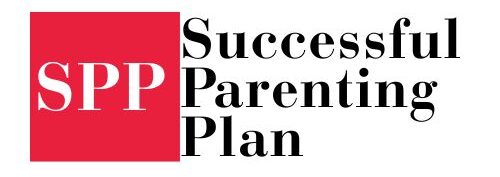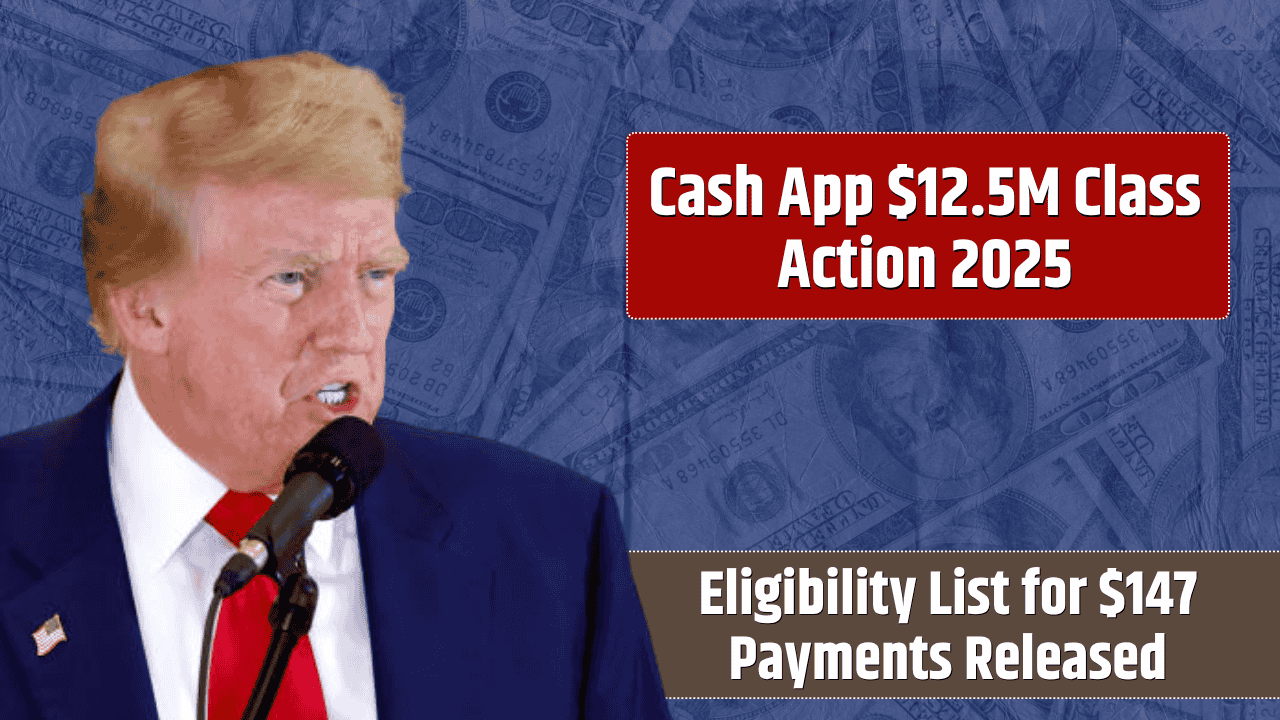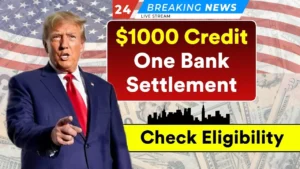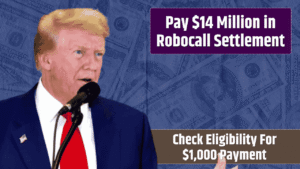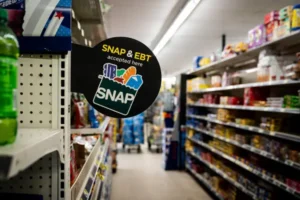Join on WhatsApp
Get the latest updates directly on WhatsApp – motivation, news & more!
Washingtonians are getting some long-awaited payback from Cash App — but for everyone else, the question is louder than ever: where’s my share? The $12.5 million settlement that’s making headlines this week is strictly for residents of Washington State, thanks to a privacy lawsuit that accused Cash App’s parent company, Block Inc., of sending unauthorized marketing texts. And while the payout window is now open, there’s more to this case than just a quick check in the mail.
What’s the Cash App Settlement Really About
If you’ve ever gotten one of those “Hey! Join Cash App and we both get $5!” texts — even though you never asked for it — you’ve already got the gist of this case. The class action, Bottoms v. Block Inc. (Case No. 2:23-cv-01969-MJP), filed in the U.S. District Court for the Western District of Washington, claimed that Cash App violated Washington’s privacy laws by sending unsolicited promotional texts through its “Invite Friends” feature.
Here’s what happened: between November 14, 2019, and August 7, 2025, Washington residents say they received prewritten messages from existing Cash App users urging them to sign up — without ever agreeing to be contacted. Under the Washington Commercial Electronic Mail Act (CEMA) and Consumer Protection Act (CPA), that’s a privacy violation.
Block Inc. didn’t admit guilt, but it agreed to a $12.5 million settlement to wrap the case up and avoid further litigation.
How Much Are People Getting?
The exact payout depends on how many eligible people file claims. But based on projections, it’s expected to land somewhere between $88 and $147 per person.
| Details | Information |
|---|---|
| Settlement Name | Bottoms v. Block Inc. (Cash App Settlement) |
| Settlement Fund | $12.5 million |
| Estimated Payout | $88–$147 |
| Claim Deadline | October 27, 2025 |
| Eligible Period | Nov. 14, 2019 – Aug. 7, 2025 |
| Website | www.BottomsTextSettlement.com |
| Contact | [email protected] / 877-540-7545 |
Payouts will likely start showing up in early 2026, once all claims are verified and processed.
Who’s Eligible to Claim
Only Washington State residents who received those Cash App referral texts during the specified period qualify.
If you live in another state — California, Texas, Florida, wherever — you’re out for this one. The lawsuit was filed under Washington’s own privacy laws, not federal ones, so its protections don’t stretch across state lines.
Still, that doesn’t mean others are powerless. Most states have their own privacy and consumer protection laws. You can still report unwanted texts or unauthorized marketing by filing a consumer complaint with your state’s Attorney General’s office. Here’s how:
- California: oag.ca.gov/contact/consumer-complaint-against-business-or-company
- Florida: myfloridalegal.com/webforms/file-a-complaint
- Washington: atg.wa.gov/file-complaint
How to File a Claim (Step-by-Step)
If you live in Washington and think you’re covered, don’t wait too long — the claim window closes October 27, 2025.
- Visit the official settlement site: www.BottomsTextSettlement.com
- Use the Eligibility Tool to confirm you qualify.
- Fill out the online claim form — or print and mail it to:
Bottoms v. Block Settlement Administrator, P.O. Box 2631, Baton Rouge, LA 70821 - Keep your confirmation number as proof of filing.
- Watch for payment updates after the deadline (expect early 2026).
If you got a notice in the mail but haven’t acted yet, you can still file — just make sure it’s done before the cutoff date. Late claims will not be accepted.
Why Only Washington?
It feels unfair, right? But there’s a reason. The lawsuit leaned specifically on Washington’s privacy statutes, which give residents stronger digital rights than many other states. Because those laws don’t apply elsewhere, the court limited the settlement class to Washingtonians.
In other words, the harm may have been nationwide, but legally, this case could only cover one jurisdiction. For similar cases to apply elsewhere, new lawsuits would have to be filed under different state or federal privacy laws.
The Bigger Picture: Privacy Laws Are Getting Teeth
This Cash App case isn’t happening in a vacuum. It’s part of a broader wave of privacy crackdowns sweeping through the U.S. Tech firms — from payment apps to social platforms — are facing growing scrutiny over how they use personal data and automate marketing.
California has its California Consumer Privacy Act (CCPA) and California Privacy Rights Act (CPRA). Colorado has its Colorado Privacy Act (CPA). And on the federal level, the Federal Trade Commission (FTC) has been stepping up action against deceptive or intrusive digital practices (FTC.gov).
Cash App’s settlement is a warning shot for every company banking on user referrals. You can’t just turn your customers into a marketing army without permission anymore. Privacy laws — once toothless fine print — are starting to bite.
As AI-driven communication tools become more common, expect these kinds of lawsuits to multiply. The era of “oops, we texted everyone in your contact list” is on its way out.
Fact Check
This settlement is real and court-approved. Verified details can be found on the official settlement site BottomsTextSettlement.com and through filings in the U.S. District Court for the Western District of Washington (Case No. 2:23-cv-01969-MJP).
Be cautious of unofficial websites or social media posts promising “instant payout” links — always confirm through official court or government pages like uscourts.gov or ftc.gov.
FAQs
Who qualifies for the Cash App settlement?
Only Washington residents who received Cash App promotional texts between November 14, 2019, and August 7, 2025.
How much will I get if my claim is approved?
Estimated payments range between $88 and $147 per eligible claimant.
What’s the deadline to file a claim?
October 27, 2025.
When will payouts be distributed?
Payments are expected in early 2026 after all claims are processed.
Can non-Washington residents get anything from this settlement?
No — but residents in other states can report similar issues to their local Attorney General or consumer protection agency.
